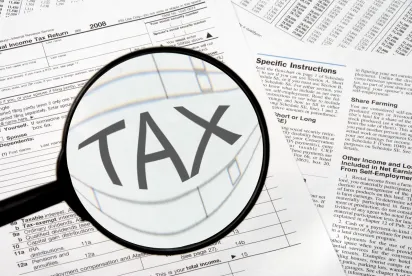Today, the Chairman of the House Judiciary Committee, Rep. Goodlatte from Virginia, released the long-anticipated discussion draft of the Online Sales Simplification Act of 2016. Highlights of the bill include:
-
The bill implements the Chairman’s much-discussed ‘hybrid-origin’ approach.
-
The bill removes the Quill physical presence requirements for sales tax collection obligations under certain circumstances.
-
States may impose sales tax on remote sales IF the state is the origin state and it participates in a statutory clearinghouse AND the tax uses the origin state base and the destination state rate for participating states (the origin state rate is used if the destination state does not participate in the clearinghouse).
-
A remote seller will only have to remit the tax to its origin state for all remote sales.
-
A destination state may only have one statewide rate for remote sales.
-
Only the origin state may audit a seller for remote sales.
-
States that do not participate in the clearinghouse have significant restrictions on the ability to extract the tax from the remote seller.
Below is a more in-depth discussion of the intricacies of the bill.
Authorization
The bill authorizes a state to impose tax or a tax collection obligation on a remote seller if the (1) state is the origin state (the definition of which is set forth below), (2) the tax is imposed based on the origin state’s base and (3) the origin state participates in the clearinghouse. Non-participating states may not receive any distributions from the clearinghouse.
The rate is the origin rate, unless the destination state participates, in which case the rate is a single state-wide rate determined by each participating destination state. The clearinghouse publishes the rates on July 1 of each year.
The bill limits audits related to remote sales to the origin state. The bill requires participating destination states to give a credit for any tax on the transaction remitted to the origin state.
Origin State
A remote seller’s origin state is the state in which the remote seller has physical presence and has the largest number of employees, as aggregated under provisions of section 414 of the Internal Revenue Code (but note that there are ongoing discussions with respect to the aggregation provisions). The bill provides a definition of physical presence under which only certain activities create physical presence. Physical presence would not include click-through agreements, delivery or product placement services, Internet advertising services not exclusively directed towards in-state customers and physical presence requires presence in the state for at least 15 days in a taxable year.
NOMAD States & Foreign Sellers
For origin states that do not impose a sales or use tax (consisting of New Hampshire, Oregon, Montana, Alaska and Delaware, typically called the NOMAD states), the bill has specific provisions. It is our understanding that the intent of the bill is that remote sellers whose origin state is a NOMAD state that participates in the clearinghouse have two options: (1) they may file a report with the clearinghouse with the purchaser’s name, address, and the amount of the sale, or (2) if the sale is to a participating destination state, may remit tax to the clearinghouse using an alternate base and the destination rate. The alternate base is the base of the state into which the remote seller has the highest gross receipts.
If a NOMAD state does not participate in the clearinghouse, then sales from remote sellers in participating states into the NOMAD state would be subject to tax. If a NOMAD state wishes to ensure that its citizens do not have to pay such tax, then the NOMAD state would need to participate.
Foreign remote sellers, i.e., remote sellers without a physical presence in any state, are treated the same as remote sellers in participating NOMAD states, except foreign remote sellers do not have the reporting option, they must remit tax based on the alternate base and destination rate for participating states.
Non-participating States
Remote sellers whose origin states are not participating in the clearinghouse are required to file a report with the clearinghouse with the purchaser’s name, address and the amount of the sale. Customers in non-participating states would pay tax on remote sales determined by the origin state’s base and rate, if the origin state is participating.
Clearinghouse
The clearinghouse is responsible for establishing the mechanisms for remote sellers to report sales. It will also establish a uniform compliance certificate that will be used for resale exemptions, direct pay permits and use- and entity-based exemptions. The clearinghouse is also responsible for establishing a method to audit remote sellers whose origin states are NOMAD states.
Jurisdiction
The bill contains language that the Tax Injunction Act shall not be construed to prohibit actions in Federal courts under this act, with the exception of the assessment, levy or collection of any tax by an origin state. It is unclear as to the extent of the scope of this limitation.
Clothing
It is our understanding that there are ongoing discussions as to how to implement a standard definition for clothing by the participating states, and allow an exemption for clothing in states that do not impose tax on clothing. Released with the bill is an additional document with draft language for this definition.
Summary
The chairman’s language is sure to generate additional discussion on the issue. It will be interesting to see what progress is made on this issue before the presidential election in November.





 />i
/>i
